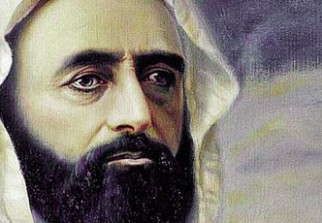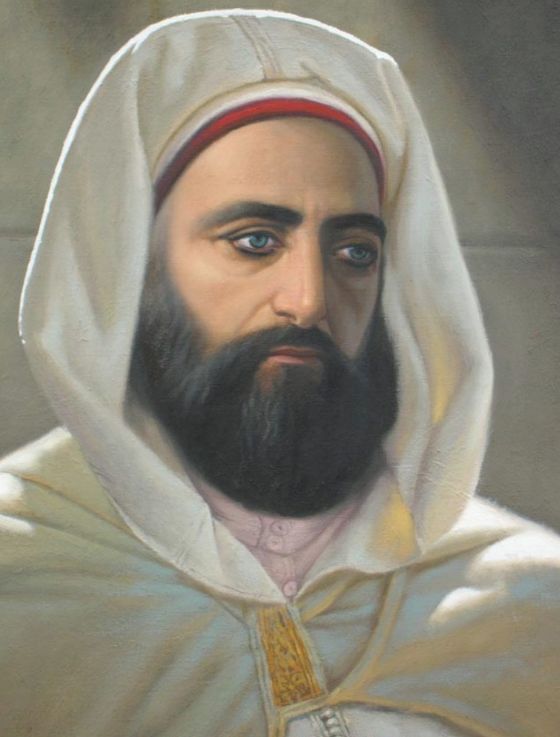El Amir Abdel Kader, an emblematic figure in Algeria's anti-colonial struggle
El Amir Abdel Kader, an emblematic figure in Algeria's anti-colonial struggle

The history of African countries has been marked by various events, including colonisation. After discovering the wealth of Africa's subsoil, Westerners decided to take the entire continent by storm. But this was without counting on the resistance of some of its worthy sons, including the formidable El Amir Abdel Kader. So, who was Abdel Kader? What role did he play in the liberation of the Algerian people? What is his legacy? We give you all the details in this article.
Who was El Amir Abdel Kader?
Real name "Abd al-Qadir ben Muhyi al-Din al-Hasani al-Gaea'iri, Amir Abdel Kader was an Algerian emir, religious and military leader. He was born on 6 September 1808 in El Guettana. He died on 26 May 1883 in Damascus, Vilayet of Syria, aged 74. The Algerian emir was known for his resistance to France during the conquest of Algeria. His many battles speak volumes about this resistance.
Abdelkader was a man who loved human rights. Unlike his opponents, whose sole aim was to conquer the land of his ancestors, he took great pains to ensure that these rights were respected. The man nicknamed modern Jugurtha received several distinctions, notably after saving the Christian community of Damascus from a massacre in 1860. Abdelkader is the story of a worthy son of Algeria who spared no effort to defend his homeland and human rights.
What were Abdelkader's main battles?

One of the main battles fought by the statesman Abdelkader was that of La Macta. In the Macta marshes, the 26-year-old soldier inflicted one of the most severe defeats on French troops. The soldier, who was able to put together a group of fighters, scored his first victory over the troops led by General Alphonse Camille.
But long before this victory, in 1834, he concluded an agreement with the French army. Except that this treaty, and the many others he had to sign, did not really give him the independence he wanted. They contained ambiguities and errors, so as to make him believe that his country would be independent. Why should this be? Because the bilingual texts did not reflect exactly what he had agreed with the coloniser.
Many other battles ensued, including:
- The battle of Sig ;
- The Battle of Sidi-Brahim;
- The battle of Oued Asla;
- The Battle of Agueddin;
- The Battle of Sikkak;
- The Battle of Mascara;
- The battle of Habrah.
Abdelkader betrayed by Morocco?
Morocco and Algeria have been brothers for centuries. And this is evident in their relations. However, this bond took a beating, particularly after the defeat of the Moroccan sultan, Moulay Abderrahmane, at the hands of the French army. Since the arrival of the French in 1830, Abdelkader had enjoyed the support of the Moroccan army chief. This led to a violent conflict between the French troops and the Moroccan army.
The French army eventually defeated the Moroccan fighters. This defeat had serious consequences for the kingdom, especially the signing of a peace treaty. This treaty forced Moulay Abderrahmane to recognise the French presence in Algeria. As a result, the Sultan undertook to withdraw his support for the Algerian Emir Abdelkader. In addition, Marshal Bugeaud gradually adapted to his guerrilla tactics.
El Amir Abdel Kader, a surrender in spite of himself?
In the meantime, the indigenous population was falling victim to French repression. Because of its new relations with Morocco, the battles fought in 1845 and 1846 were not very successful. The religious man was then forced to surrender, as he no longer had any support as such. The eastern tribes refused to support him. Only the Berbers of western Kabylia responded to his appeal.
His ex-supporter Abderrahmane finally sealed his fate when he banished him from his kingdom. The Emir could no longer return to Morocco as before. He surrendered to the French army in December 1847, a surrender that was, moreover, conditional. Abdelkader asked the French to allow him to go to Alexandria or Acre. This request was accepted, but was no longer respected by the French government, which kept the Algerian in captivity.
El Amir Abdel Kader: what was life like in detention?

From Algeria, Abdelkader was detained respectively at Fort Lamalgue, Pau and the Château d'Amboise. The latter place led to a deterioration in his health, as it was quite humid. His family and followers were also held in conditions that left much to be desired. Many French personalities, including Victor Hugo and Émile de Girardin, asked for more information about his situation.
Émile Ollivier even went so far as to launch a campaign to raise awareness of the Emir's situation. The international community also kept a close eye on Abdelkader's situation and campaigned for his release. Lord Londonderry eventually obtained his release under the reign of Louis-Napoléon Bonaparte (Napoléon III). This was on 16 October 1852. The former warlord then moved to Bursa, in what is now Turkey, where he died at the age of 74.
